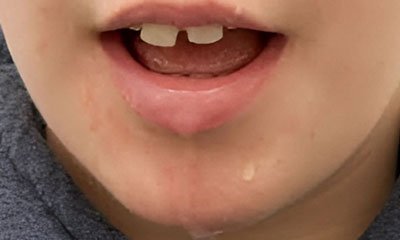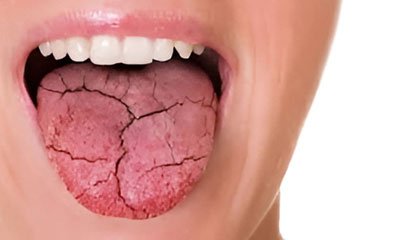Salivary glands play a crucial role in maintaining your oral and digestive health. While they may seem like small, insignificant glands, their proper functioning is essential for starting the digestion process. When these glands experience issues, they can lead to discomfort, infection, and more serious health complications.
Saliva not only aids in digestion but also protects your teeth and gums, making it a key player in overall health. Without enough saliva, your mouth can become dry and prone to infections. On the other hand, excessive saliva can indicate underlying health concerns. Let’s explore how salivary gland disorders can impact your digestive health and what you can do about it.
Understanding Salivary Glands and Their Role in Digestion
To understand how salivary gland disorders affect digestion, it’s important to first know the function of the salivary glands. There are three major pairs of salivary glands in the mouth:
- Parotid Glands: Located near the jaw, these glands are the largest and produce the majority of your saliva.
- Submandibular Glands: Found beneath the jaw, they produce a mixture of mucus and saliva.
- Sublingual Glands: Located under the tongue, they mainly produce mucus-like saliva.
Saliva contains enzymes, particularly amylase, which begin the process of breaking down carbohydrates into simpler sugars as soon as food enters the mouth. Additionally, saliva moistens food, making it easier to chew and swallow. It also helps cleanse the mouth, neutralize acids, and protect teeth from decay.
When these glands are not working properly, the first part of digestion, the breakdown of food in the mouth, can be impaired. This, in turn, can affect the rest of the digestive process.
Types of Salivary Gland Disorders
Salivary gland disorders are generally classified into two main types:
1. Hypersalivation (Excess Saliva Production)
Hypersalivation refers to the excessive production of saliva. It can occur due to neurological conditions, infections, or gastrointestinal reflux. While it may seem harmless, persistent hypersalivation can lead to difficulty in swallowing and speaking, as well as an increased risk of aspiration.


2. Hyposalivation (Reduced Saliva Production)
Hyposalivation, or dry mouth, occurs when the salivary glands do not produce enough saliva. This condition can result from dehydration, medication side effects, or autoimmune diseases like damage to the glands. A dry mouth can lead to difficulties in chewing, swallowing, and digesting food, as well as an increased risk of cavities and oral infections.
How Salivary Gland Disorders Impact Digestive Health
When salivary glands are not functioning properly, the process of digestion can be severely impacted. Here are some of the ways in which these disorders can affect your digestive health:
Difficulty Chewing and Swallowing: Saliva is essential for moistening food, making it easier to chew and swallow. When there is not enough saliva due to a salivary gland disorder, food may become dry and difficult to break down. This can lead to discomfort, choking, or the need to drink excessive amounts of liquid to help swallow.
Incomplete Digestion in the Mouth: The first stage of digestion occurs in the mouth, where enzymes in saliva begin breaking down carbohydrates into simpler sugars. Without adequate saliva, this process is compromised, leading to incomplete digestion and potentially causing digestive discomfort later in the stomach and intestines.
When food isn’t properly broken down in the mouth, the body has to work harder during the later stages of digestion, which can lead to bloating, indigestion, or other gastrointestinal issues.
Oral Health Problems Leading to Digestive Issues: Salivary gland disorders, such as dry mouth or infections, can increase the risk of tooth decay, gum disease, and other oral health issues. Poor oral health can lead to infections that affect your digestive system. If food particles and bacteria are not effectively removed from the mouth, they can enter the digestive tract, leading to digestive infections or issues like bloating, discomfort, and even systemic infections in severe cases.
Nutritional Deficiencies: Because salivary gland disorders can make it difficult to chew and swallow, individuals with these conditions may avoid certain foods or eat less. Over time, this can result in nutritional deficiencies, particularly in vitamins and minerals that are essential for overall health. A lack of proper nutrition can weaken the immune system, hinder digestion, and lead to other health complications.
Dehydration: Saliva is made up largely of water, and if you are not producing enough saliva, you may become dehydrated. Dehydration can have a significant impact on digestive health, leading to constipation, sluggish digestion, and difficulty absorbing nutrients from food.
How to care for Salivary Gland Disorder
1. Stay Hydrated: Hydration is one of the most important factors in maintaining the health of your salivary glands. Dehydration can reduce saliva production, leading to dry mouth and other related issues.
2. Practice Good Oral Hygiene: Salivary gland disorders can increase the risk of oral health problems, such as tooth decay, gum disease, and bad breath. To keep your mouth healthy.
3. Avoid Irritants: Certain substances can worsen symptoms of salivary gland disorders, especially dry mouth.
4. Consume Soft, Moist Foods: If you have difficulty chewing due to a salivary gland disorder, choose soft, moist foods that are easier to swallow.
5. Use Warm Compresses: For painful or swollen salivary glands, such as those affected by an infection or blockage applying a warm compress can provide relief.
6. Maintain a Healthy Diet: Eating a balanced diet can support the overall health of your salivary glands and your immune system. Ensure you’re getting enough nutrients.
7. Manage Stress: Stress and anxiety can exacerbate salivary gland disorders, particularly dry mouth. Finding ways to manage stress can improve overall salivary function.
8. Seek Medical Treatment: Salivary gland disorders can affect your digestion and cause discomfort. Getting an early diagnosis and proper treatment from an ENT specialist can help restore gland function and improve your overall health.
If you notice any symptoms, consult an ENT surgeon for expert care and prevent further complications. A healthy mouth supports a healthy digestive system take the first step towards better well-being today!
